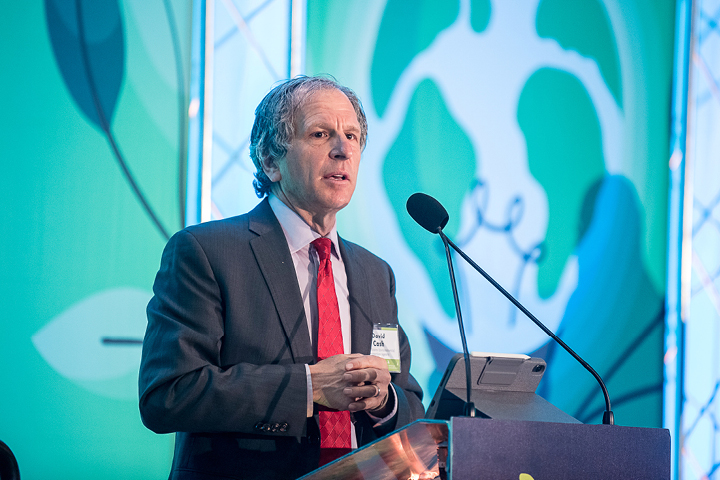EPA Focuses on Environmental Justice

Righting past wrongs is a focus of the Environmental Protection Agency throughout New England and the country, says regional administrator David Cash.
“There is a legacy we need to address,” Cash told attendees at CBIA’s June 2 Energy & Environment Conference.
Cash said Black children in the U.S. face asthma rates twice as high as White children. Meanwhile, 73% of fossil fuel plants are in low income communities throughout the country.
Environmental justice is just one of the priorities Cash said he will focus on while he oversees Region 1, which includes the six New England states.
The other four are increasing diversity within his own staff, utilizing funds from the infrastructure bill, slowing climate change, and increasing the EPA’s communication.
Infrastructure Bill
$50 billion from the federal infrastructure bill is dedicated to the environment, which Cash said will be ‘transformational’ for many cities and towns.
He said many of the funds will go toward water infrastructure and improving wastewater facilities which is a win for the communities.
“It gets cleaner water for the community, Cash said.
$106 million in federal funding will be dedicated to Long Island Sound.
“It gets jobs in the community, and perhaps the most important point is it gets families to turn on their tap and get families drinking water without worry of contamination.”
$106 million in federal funding will be dedicated to Long Island Sound, making sure it’s clean and can support recreation and fishing.
Funding will also set aside to reduce emissions from school buses, targeting communities most impacted in the past.
Diversity
In order to understand the needs of the lower income communities, which statistics show are the most polluted, Cash said a lot of work has to be done to diversify the EPA staff.
“The EPA offices aren’t as diverse as the communities they serve,” he said. “We aren’t going to be able to solve these problems.
“The EPA offices aren’t as diverse as the communities they serve.”
EPA administrator David Cash
“We will never be able to understand how a community is struggling with lead, for example, or how a community is struggling with unemployment, and is seeking ways to jump on the clean energy future.”
Cash said the research shows the EPA cannot do this effectively if it does not have staff that comes from these communities.
Public-Private Partnerships
When it comes to climate change, he said investments in offshore wind will not only help reduce emissions but rebuild parts of the economy.
He said private public partnerships will form in order to manufacture turbines and produce energy, delivering more jobs and economic output.
“The private sector is such a key player in addressing environmental issues.”
Cash
“Offshore wind is going to be the source of clean electricity, there is no question about it,” Cash said.
“The private sector is such a key player in addressing environmental issues and linking them to environmental development.”
RELATED
EXPLORE BY CATEGORY
Stay Connected with CBIA News Digests
The latest news and information delivered directly to your inbox.



